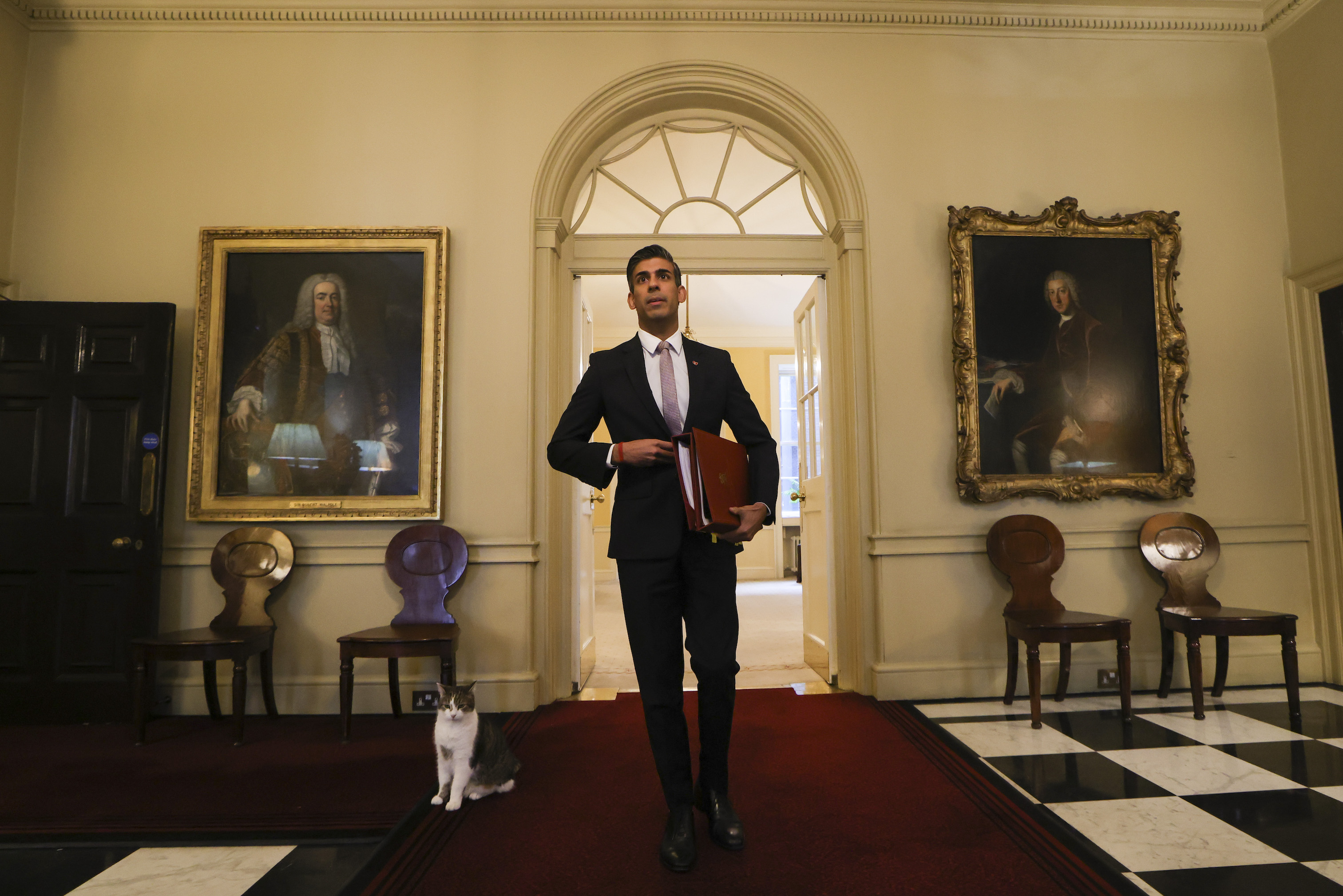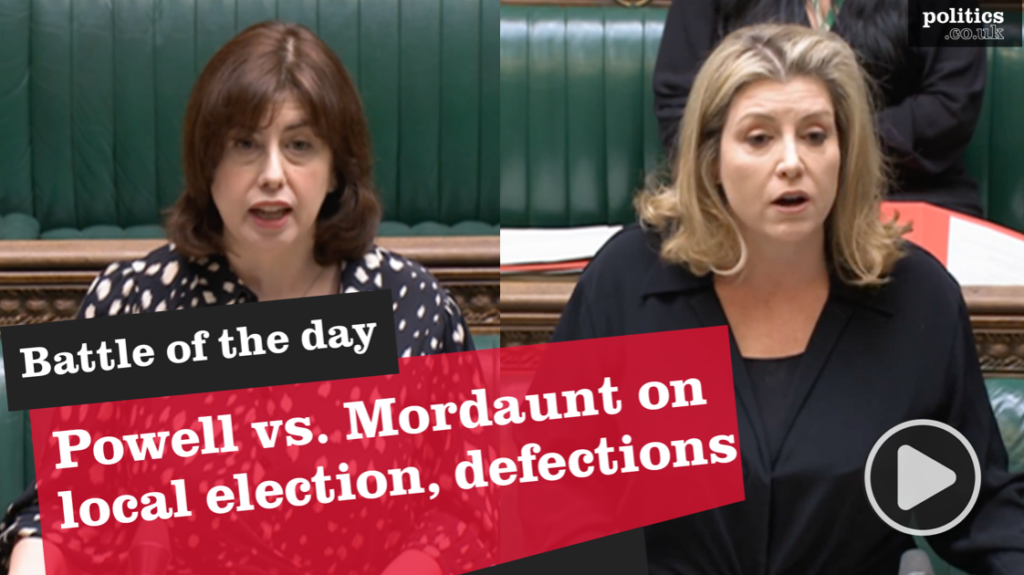After a difficult first few months as prime minister, Rishi Sunak undertook in the New Year to define his time in Downing Street on the clearest possible terms. He called on the doubting public to “trust” him as he rolled out five shiny, new pre-election pledges: place your faith in me and inflation would “halve”, he said, the economy would “grow”, debt would “fall”, NHS waiting lists would “shorten” and the small boats would “stop”.
And lo — every single announcement, speech and policy update since has been framed through the prism of these five pledges. Ask the PM what he’s up to on a day-to-day basis, and he responds that his government is focussed on delivering his core missions. Ask the PM to expound his inner-most ideals, he returns to his New Year’s resolutions. Were you to ask Sunak for his choice of lunch, he’d explain how his chosen snack was boosting the local economy. Presumably, when he turns in for the night in No 10, Rishi counts small boat crossings, not sheep.
It is politics by bullet-pointed bromide — matter-of-factly mundane and ruthlessly pragmatic. “I ask you to judge us on the effort that we put in and the results that we achieve”, Sunak explained in January. The PM planned to bore Britain with a record of delivery so undeniable, so straightforward that the public would be forced to reward his party with an unprecedented fifth term.
But over six months in, the barrage of bad news last week has placed the logic behind Sunak’s oaths-focussed strategy under significant strain. Debt is rising — now standing at 100.1 per cent of GDP; prices increase at an untempered rate — with core inflation up; we teeter on the brink of technical recession; and, on Sunday, it was revealed that more than 1,100 people had arrived on small boats in the past three days.


And so Sunak’s bullet points — once slighted as unambitious — appear increasingly out of reach.
What is more: Sunak’s failure on his pledges is cutting through. Once “don’t know” responses are removed, YouGov found last week that over 90 per cent of people think the PM is failing on four of his five pledges. Our technical avoidance of recession and 0.2 per cent growth saves Sunak’s blushes in the single instance.
Thus the core tenets of Sunakism, defined deliberately on strict managerial lines, are being upended. No longer can Sunak appeal to his pledges to wriggle out of an uncomfortable line of questioning — now, the uncomfortable questions dissect his commitments. Moreover, rather than creating a feeling of momentum and prime ministerial activism, Rishi’s reverent repetition of oaths creates a sense of deep inertia emanating from Downing Street.
Moreover, in January, the pledges were styled deliberately as the PM’s personnel missions in a bid to take advantage of Sunak’s strong polling ratings relative to his party. But now the PM’s personal polling has tumbled.YouGov’s latest favourability survey, released last week, finds only 27 per cent of Britons have a favourable view of the prime minister, compared to 61 per cent who view the PM unfavourably.
Plainly, the PM needs a new take on governance. So with his bullet points exposed more and more as mere bunken, is it time for the PM to lob a “dead cat” at the press lobby?
The “dead cat” strategy is the brainchild of the Australian election strategist Lynton Crosby, and describes a particular tactic a politician might employ at a moment of heightened political pain.
The thinking is thus: when you are losing an argument, as Sunak is — and the narrative has spun so definitely out of your favour, as the pledges have — the hypothetical politician should muster a new policy and/or new line of attack so shocking that the media cannot help but pay attention. In turn, the chatter on problematic matters slows and the media cycle churns over anew, focussing on this new point of interest.
Of course, one seasoned practitioner of the dead cat creed was Boris Johnson. And in 2013 — some years before he entered No 10 — the then-London mayor penned an article for the Telegraph dedicated to the concept.
“Let us suppose you are losing an argument”, Johnson begins. “The facts are overwhelmingly against you, and the more people focus on the reality the worse it is for you and your case. Your best bet in these circumstances is to perform a manoeuvre that a great campaigner describes as ‘throwing a dead cat on the table’”.
In this way, dead catism is — ostensibly — Sunakism’s logical antithesis. The PM takes care with his politics, preparing the ground before being seen to act decisively. He wants the headlines to be filled with long reads about prime ministerial activism, especially on matters economic. Indeed, the long-termism of Sunak’s five New Year pledges was as much an attempt to draw a symbolic line under the lurching focuses of the Johnson era as any grand vision for government.
By design, Sunak’s kitchen table would be free from rotting felines — instead enveloped with grand plans for health and immigration.
But the prime minister — who in the New Year set out to contour the terrain on which the next election would be fought — has lost control of his own narrative. No longer able to lean on his pledges at a time of heightened political pain (the recent partygate saga, for example), an unapologetic retreat into the distraction tactics of the Johnson era could therefore provide the PM with some short-term relief.
And perhaps we are already seeing the beginnings of the dead cat process — whereby a feline carcass is summarily located, holstered and foisted onto the kitchen table for all to gawk.
Today, chatter that the government will reject the recommendations of their own independent pay review bodies dominates the media cycle. It is a notable step change from the news last week, focussed on inflation figures of the Bank of England’s rate response. Indeed, it is a story in all parts shocking, eye-catching and column-inch-consuming. The Labour party — handed a free pass through the travails of last week — has already been forced to respond, hinting coyly that it might follow the government’s lead and back Sunak’s decision to overrule the body. It appears a dead cat with which both Johnson and his press patron Lynton Crosby would be proud.
Unable to rely on his pledges for political relief, one wonders if Sunak will now lean into the approach, announcing new initiatives in immigration, for instance, to break up the bad news. It could provide Sunak with a short-term grace period as his team scrambles to update its communications strategy, crafted on the uncertain foundation of his New Year oath-swearing.
Follow @josh_self_ on Twitter












